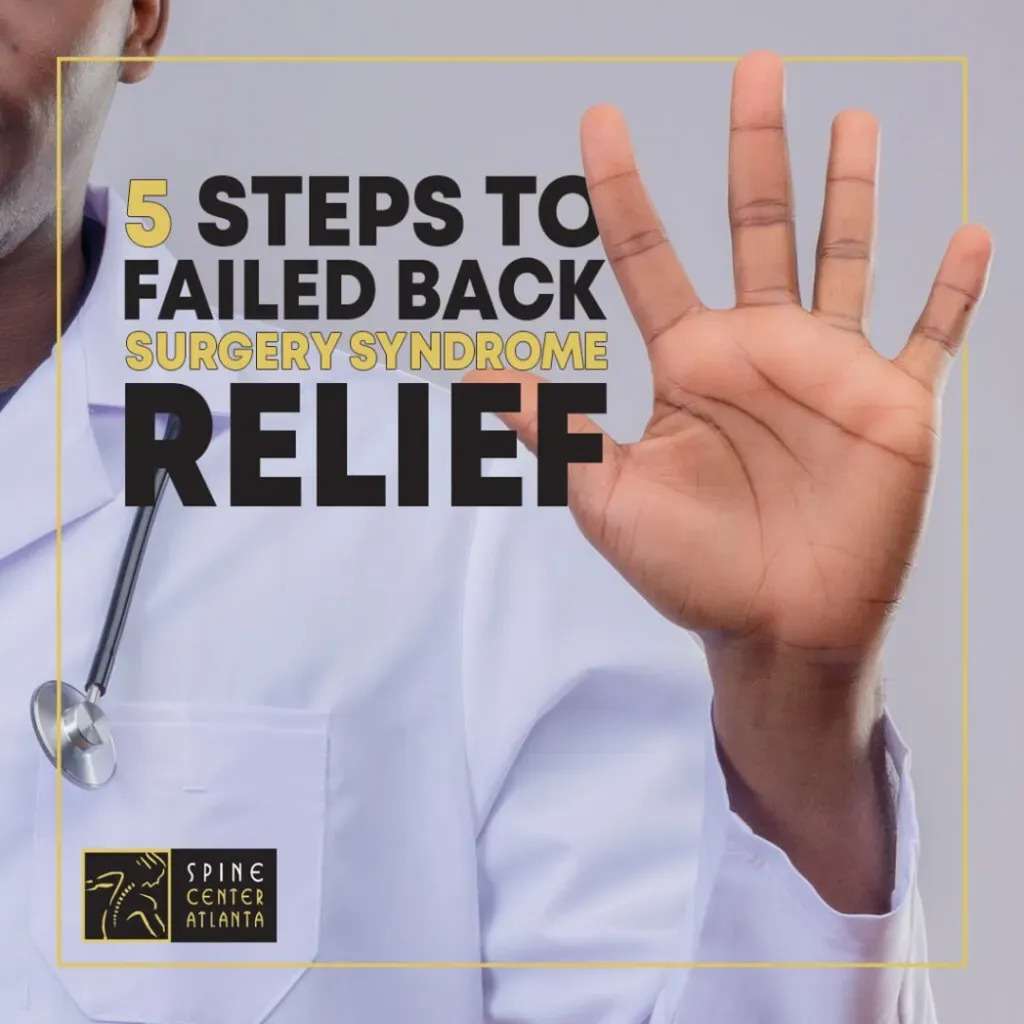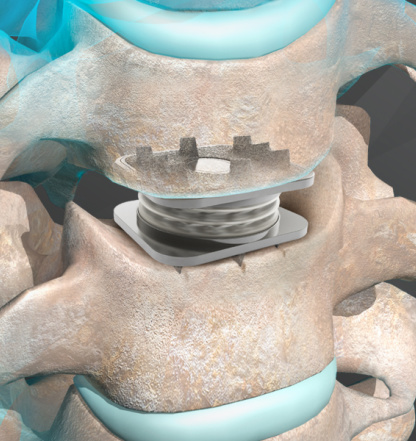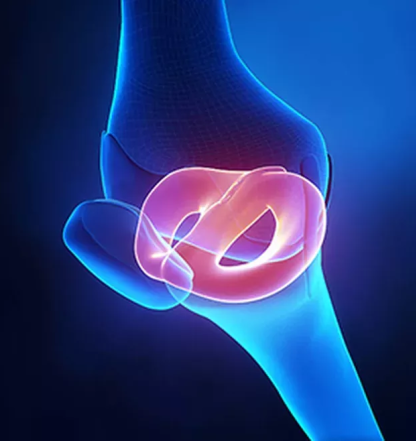Anyone facing an unsuccessful back surgery or complications relating to any spine procedure knows how completely frustrating the situation can be. To undergo what you are hoping will be the solution to your back pain and mobility problems,…
Anyone facing an unsuccessful back surgery or complications relating to any spine procedure knows how completely frustrating the situation can be. To undergo what you are hoping will be the solution to your back pain and mobility problems, only to encounter the return of pain or new problems can be a serious blow to your quality of life.
As difficult as failed back surgery syndrome (FBSS) is to deal with, the best thing anyone can do is keep a positive mindset. Even if it seems hopeless, there are successful treatment and pain management options that can help you overcome FBSS on a long-term basis. By educating yourself as a patient and creating an action plan, you can take control of your back pain and get back on the road to relief.
If you have any questions about FBSS treatment or want to schedule your appointment, feel free to reach out to a member of our caring team at any time. We’re here to help.
1. Understand the Major Causes of Failed Back Surgery Syndrome
Failed back surgery syndrome is not a specific condition and does not have one primary cause. It is actually a general term for a wide range of problems that can develop either as a direct result of a spine surgery or due to changes in the aftermath of a spine surgery. These can include:
- Spinal misalignment after fusion
- Hardware failure or rejection
- Infection at the surgical site
- Neurological damage due to surgical error
- Recurrent disc conditions or spinal narrowing
- Mental health issues, such as stress or anxiety, that worsen pain
Because there are many potential causes for FBSS, it is essential to seek a thorough diagnosis by a qualified and experienced medical team.
2. Receive a Thorough Evaluation and Diagnosis for your Symptoms
Some amount of pain and discomfort is normal after back surgery as your body heals and recovers from a major procedure. If you are experiencing abnormal pain beyond what your surgical provider told you to expect, you should seek a diagnosis and treatment plan as soon as possible. When undergoing an examination, you may encounter the following steps:
- Review of your medical history, including initial surgical diagnosis
- Hands-on physical examination
- Diagnostic imagery, such as an MRI
- Neurological evaluation, especially if there is believed to be potential nerve damage
- Nerve blocks
Through these and other steps, an FBSS specialist can pinpoint the cause of your FBSS-related back pain and other symptoms and help you develop a treatment plan.
3. Recommit to Conservative Pain Management Therapies
In certain situations, an immediate follow-up surgery may be needed for FBSS, such as for hardware rejection or serious surgical error. In many cases however, conservative pain management techniques help many patients find lasting relief and overcome pain. While these may be the same types of treatments you tried in the early days of your back pain, fully recommitting to nonsurgical therapy can be effective.
Conservative FBSS treatment and pain management techniques include:
- Physical therapy to help rebuild strength and increase range of motion
- Over-the-counter medication to help manage pain and inflammation
- Therapeutic massage to relax tense muscles and increase blood flow
- Behavioral care interventions to help learn psychological pain management techniques
It may take some time to find the effective plan that works for you, but by being persistent and committing to a healthy lifestyle, many people find lasting pain relief.
4. Explore Lifestyle Changes and Alternative Therapies
A spine-healthy lifestyle is another important step in achieving relief from FBSS. Becoming sedentary and neglecting your health can have a negative impact on your ability to manage pain. This is why eating a nutrient-rich diet, getting regular exercise, practicing the best possible posture and body mechanics and staying hydrated are some relatively simple yet effective measures anyone can take to find relief from back pain related to FBSS.
Additionally, many FBSS patients seek out alternative therapies that they may not have tried previously. For example, by promoting blood flow and releasing endorphins, the body’s natural painkillers, acupuncture can be an effective part of a holistic and comprehensive relief plan for FBSS.
5. Know When to Consider a Follow-Up Surgical Procedure
A follow-up or revision spine surgery is generally only seriously considered when conservative therapies for FBSS have been exhausted. However, in some cases, it does offer the best chance of lasting relief. If you are considering surgery to relieve FBSS, working with a highly experienced surgeon with a background in FBSS cases should be your top priority.
Spine Center Atlanta Specializes In Comprehensive Treatment for Failed Back Surgery Syndrome
No matter what step in your FBSS treatment journey you are on, Dr. James L. Chappuis and the entire expert team at Spine Center Atlanta can help. From our state-of-the-art diagnostics center to our advanced rehabilitation and pain management facilities, to our world-class ambulatory surgery center, patients across the United States come to Spine Center Atlanta to find the relief they deserve.
Contact us today to schedule your initial appointment with one of our caring and dedicated representatives.






























